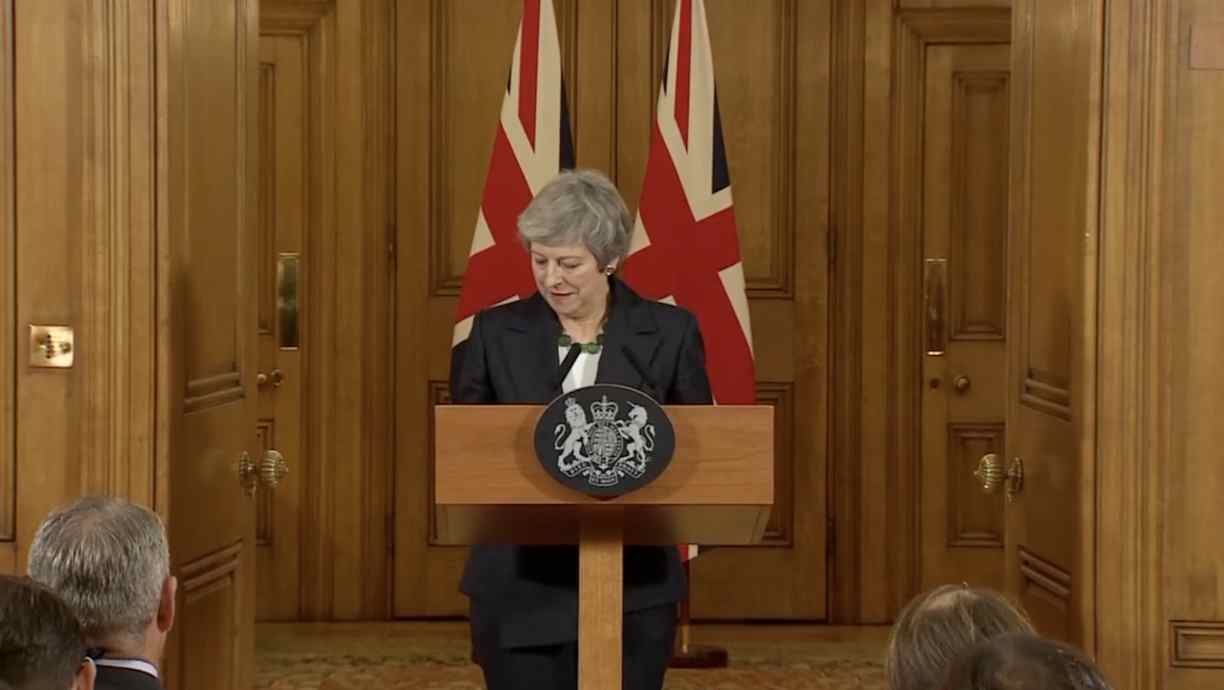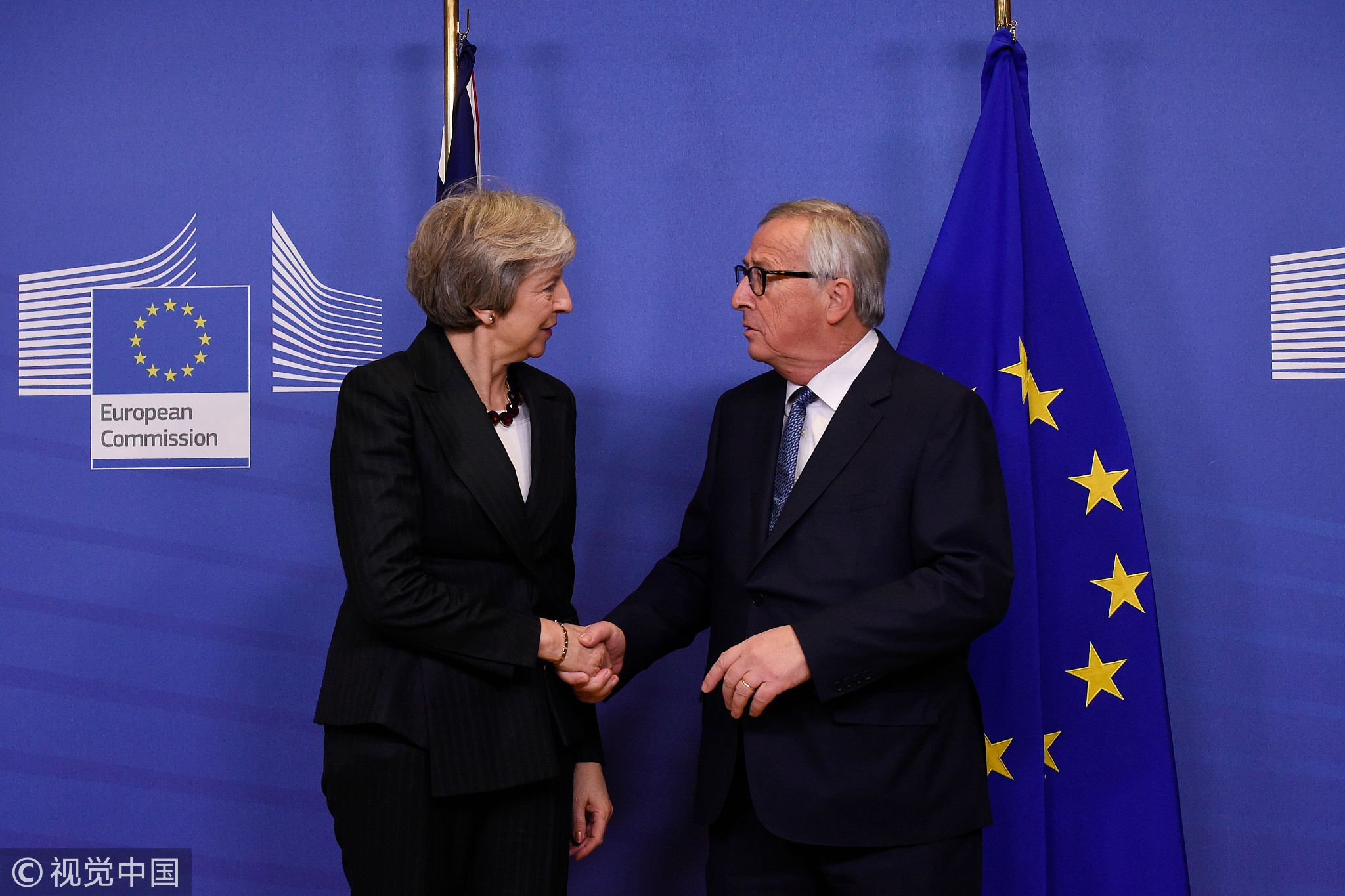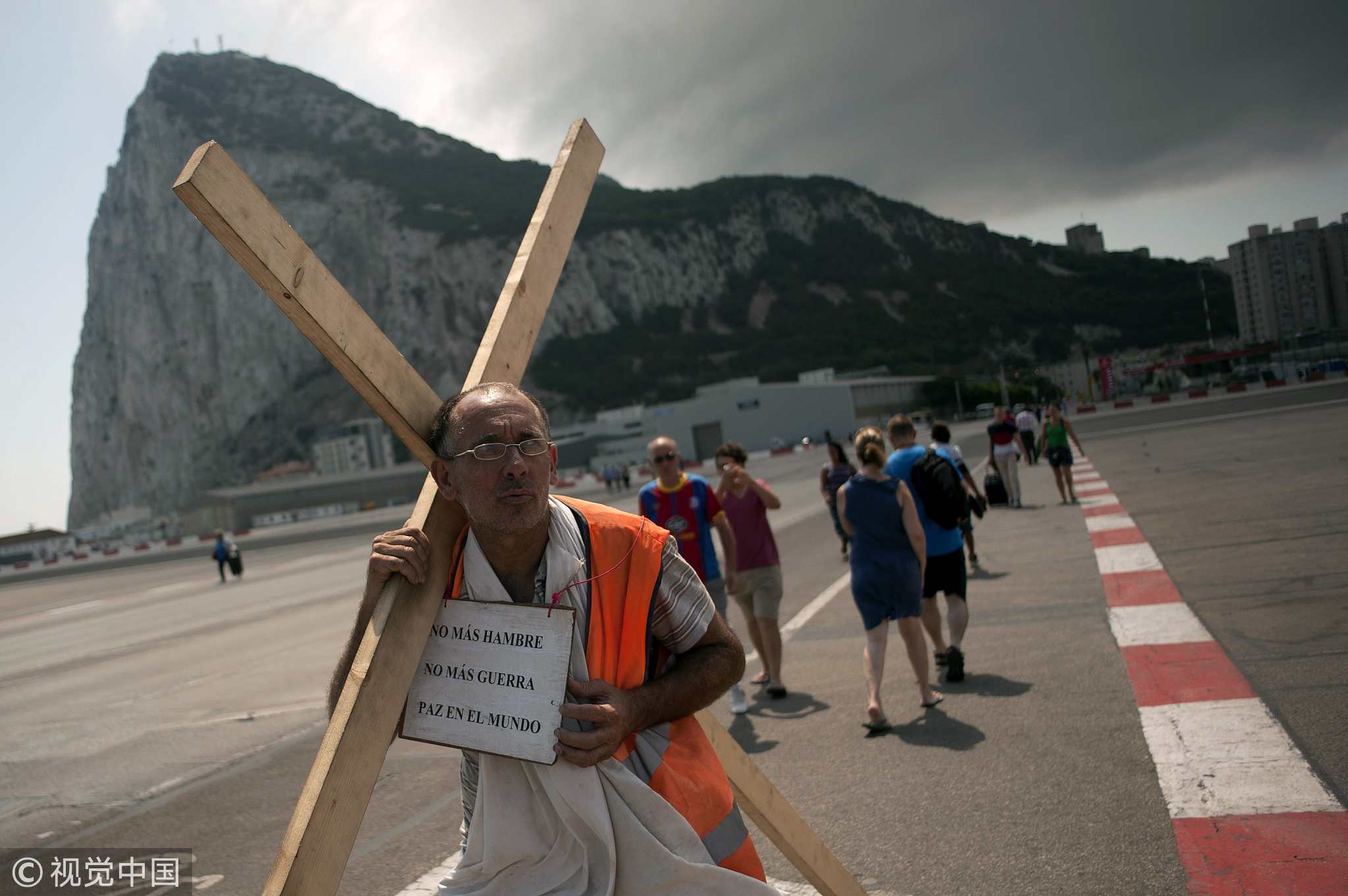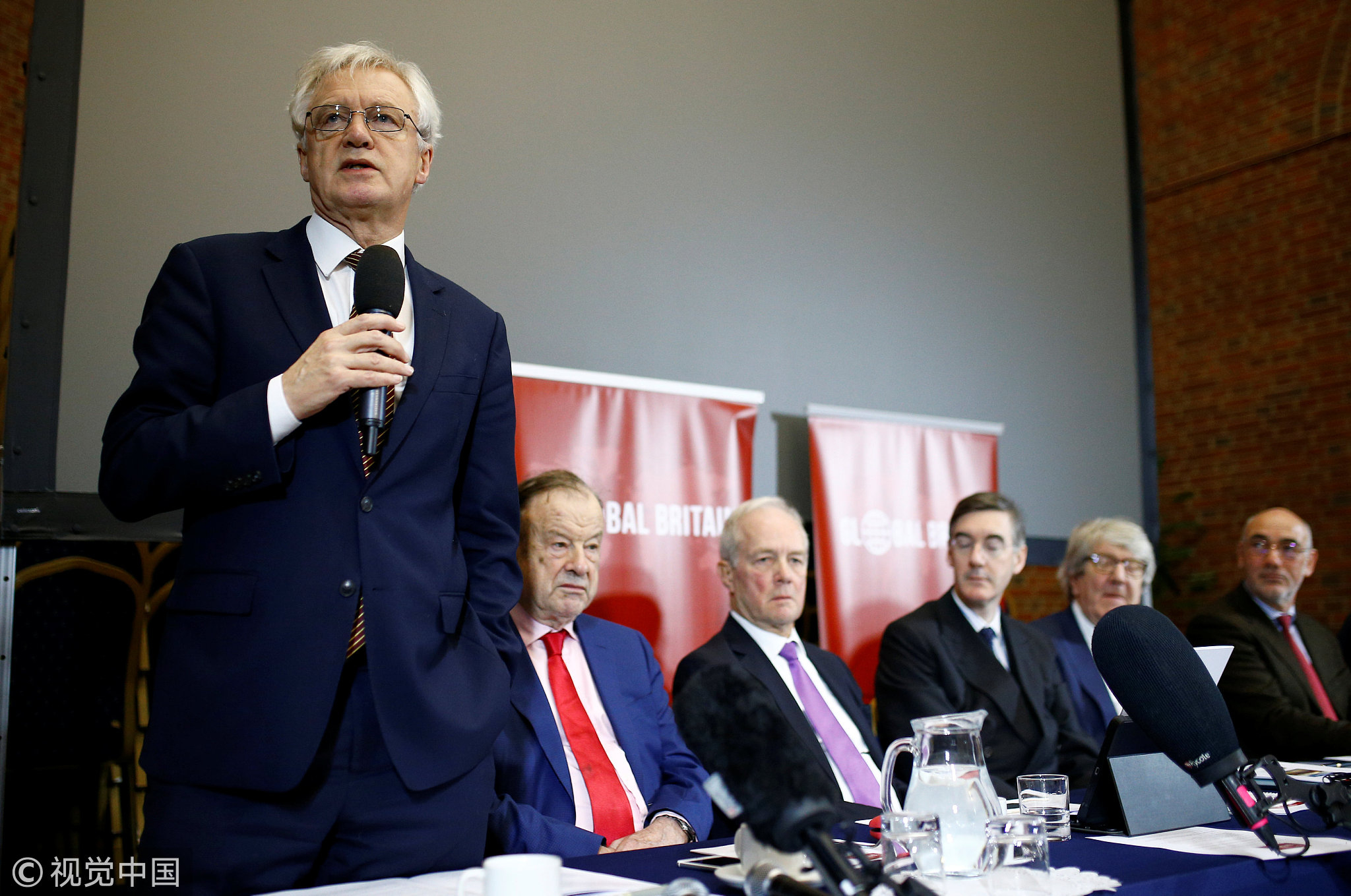01:29

British Prime Minister Theresa May said she would return to Brussels for further EU divorce talks on Saturday - 24 hours ahead of a planned summit set to seal a Brexit deal.
May made a lightning trip to Brussels on Wednesday to lobby European Commission President Jean-Claude Juncker but left with the planned Brexit deal signing summit still in the balance.
Negotiators are hammering out details of a political statement on future UK-EU ties that will accompany the divorce deal, under pressure to put it together before member states' top diplomats meet on Friday.

European Commission President Jean-Claude Juncker (R) welcomes British Prime Minister Theresa May for a meeting, Brussels, Belgium, November 21, 2018. /VCG Photo
European Commission President Jean-Claude Juncker (R) welcomes British Prime Minister Theresa May for a meeting, Brussels, Belgium, November 21, 2018. /VCG Photo
"There are some remaining issues which we have discussed this evening," May said after talks with Juncker. "We've been able to give direction to our negotiators on resolving these issues, so further progress has been made," she said, in a clip from Brussels aired by British broadcasters.
"I'll be returning on Saturday for further meetings, including again with President Juncker, to discuss how we can ensure that we can conclude this process in a way that is in the interests of all our people. "
The withdrawal treaty itself is all but finalized, and preparations are underway for Sunday's summit to sign it, but there remains the matter of the parallel 20-page political declaration on future relations. Neither side has much wiggle room left to polish the text.
Threats from Spain
Spain has threatened to vote against Britain's Brexit deal over unresolved issues concerning the disputed territory of Gibraltar.
The Spanish government wants the agreement modified to make clear that the future of the British territory relies on talks between Madrid and London, Prime Minister Pedro Sanchez said.
Spain's demands are the latest push by EU states to obtain more on national interests ahead of Sunday's summit of EU leaders, but diplomats said there was little concern these would scupper prospects for a deal.
"As of today, if there are no changes with respect to Gibraltar, Spain will vote no to the agreement on Brexit," Sanchez said during a conference in Madrid on Tuesday.
According to EU rules, the withdrawal treaty is adopted by a qualified majority and not unanimity. So a single state like Spain cannot block it. The EU's executive said it was aware of Spain's concerns and it expected the issue to be resolved.
A small peninsula on Spain's southern coast and a British territory since 1713, Gibraltar is a major point of contention in Anglo-Spanish relations. Spain has long claimed sovereignty over it.

Spaniard Justo Marquez, unemployed, walks with a wooden cross in Gibraltar on September 1, 2013, on completing a 140 km walk from Malaga, where he intends to spend 24 hours fasting and in prayer in front of the border separating Spain and Gibraltar, asking God to end the conflict between Spain and Gibraltar over territorial waters. /VCG Photo
Spaniard Justo Marquez, unemployed, walks with a wooden cross in Gibraltar on September 1, 2013, on completing a 140 km walk from Malaga, where he intends to spend 24 hours fasting and in prayer in front of the border separating Spain and Gibraltar, asking God to end the conflict between Spain and Gibraltar over territorial waters. /VCG Photo
Gibraltar is due to leave the European Union along with the United Kingdom in March, although 96 percent of its population voted in the 2016 referendum to remain in the bloc.
While Spain last week initially welcomed a protocol on Gibraltar in the draft Brexit agreement, Foreign Minister Josep Borrell on Monday said there was confusion over Gibraltar in the main body of the agreement.
That needed to be clarified in the broader political declaration on the new relationship between the EU and the UK, Borrell said. Sanchez reinforced that message on Tuesday.
"If on Sunday in the @EUCouncil the Brexit deal does not recognize that Gibraltar's situation must be negotiated directly between Spain and the United Kingdom, this government will not accept it,” Sanchez said on Twitter.
"If this government, which is a pro-European government, finds itself in this situation, this means that someone in Brussels didn't do their work well," he said, adding that Spain had offered various drafting options both to Britain and to EU negotiator Michel Barnier.
In Brussels, EU spokesman Margaritis Schinas said the bloc agreed last year that "after the UK leaves the Union, no agreement between the EU and the UK may apply to the territory of Gibraltar without the agreement between the Kingdom of Spain and the United Kingdom."

David Davis, the former UK secretary of state for exiting the EU, attends a meeting of the pro-Brexit European Research Group in London, November 20, 2018. /VCG Photo
David Davis, the former UK secretary of state for exiting the EU, attends a meeting of the pro-Brexit European Research Group in London, November 20, 2018. /VCG Photo
Diplomats in Brussels expected the issue to be resolved by adding more such language in the withdrawal agreement and the declaration on post-Brexit ties between the EU and Britain by Sunday when they are due to be presented to EU leaders for approval.
Gibraltar borders the Andalusia region where regional elections key for Sanchez's socialist party as well as his main opponents are held on December 2. Several thousand Spaniards cross the border every day to jobs in the territory.
Gibraltar's Chief Minister Fabian Picardo on Monday issued a statement regretting the Spanish position.
"It does not come as a surprise that Madrid should seek to raise new Gibraltar issues at the last minute on our negotiations to leave the EU. Raising an issue at the 11th hour is a well-known tactic that has been used by Spain in the past while were in the EU," Picardo said.
Source(s): AFP
,Reuters





